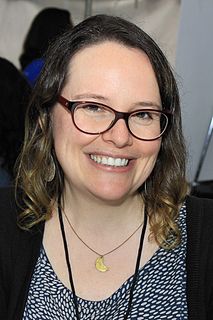A Quote by Larry Winget
I think it's more helpful to keep your books sort of a singular focus. Get it said, get it said well, fascinate people with your words and then write another book.
Related Quotes
If you are reading in order to become a better reader, you cannot read just any book or article. You will not improve as a reader if all you read are books that are well within your capacity. You must tackle books that are beyond you, or, as we have said, books that are over your head. Only books of that sort will make you stretch your mind. And unless you stretch, you will not learn.
I worked for dad on the grounds and I was in high school and I said I wanted to go to college, and he said, well, you figure it out. He said I will pay for your college but you're going to go to St. Vincent. St. Vincent College right here. That's about as much as I can afford, you work here, right here at home. I said, what if I can get somewhere else? And he said if I can get there, that's your call.
I had people read it early on and, you know, well-meaning people said to me, you should take out the blogs. I didn't get much positive feedback. Only because most of these people were protective of me - it was sort of like a "tone it down, make it easier to swallow" kind of thing. And I just thought if I do that then it's not the book I want to write.
For a while I used to listen to those whispers about babies costing you books, and Cyril Connolly's loathsome quote that "There is no more somber enemy of good art than the pram in the hall." But it's rubbish. Absolute rubbish. A huge amount of your work is done when you're not at your desk. Knotty problems that you need your unconscious to solve. So it can be helpful to walk away and focus on other things and it can be helpful to be a bit harassed in your daily life, to be hungry for time to write.
What Clint Eastwood meant was when you are directing and starring in a film, there's a temptation to spend more time on the other actors' performances, and then when you get to your own work, you kind of go, "Oh, yeah, well, let's cut that." And he said, "Take your time and make sure you do your work right." It's especially good advice if you're going from one career to another.
I brought the music out to L.A., and the producer Tommy LaPuma heard it and he said - "Man, I love it. Let's do it. Let's record it." I said, "Okay, where's the band?" He said, "We don't have a band. We want it to sound exactly like your demo." I said, "Well, I played all the instruments on the demo." You do that when you're making demos. You got your guitar, you got your sax. He said, "Well, I want it to sound just like that, so get all your instruments out here." So I ended up playing all the instruments.
You've been quiet these past days," Trevanion said. "Are you going to tell me what the...exchange of words was about?" "Who said there was an exchange of words?" Finnikin asked with irritation. "When a woman says 'I hope you fall under your horse' and 'catch your death, then see if I grieve you,'" Perri said, "then there's been an exchange of words." Finnikin glared at him. "In my humble opinion.
At times , he didn't understand the meaning of the Koran's words . But he said he liked the enhancing sounds the arabic words made as they rolled off his tongue . He said they comforted him , eased his heart . "They'll comfort you too . Mrariam jo , " he said . "You can summon then in your time of your need , and they won't fail you . God's words will never betray you , my girl . (pg.17)



































